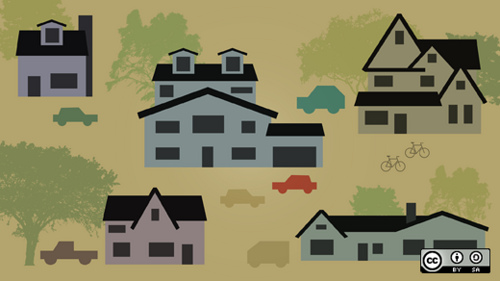Ridesharing has come a long way since the days of college bulletin board want ads and soccer practice carpools. The arrival of online social networks paired with the growing trend of collaborative consumption has made the sharing of goods, like ridesharing, one of the most popular and effective ways to compensate for a struggling economy. The fact that sharing promotes a sense of community and reduces our impact on the environment is the sweet icing on the cake.
Rideshare Econ 101
U.S. Highways are the largest public works project of all time at a cost of $425 billion. Every year, there are 2.3 billion long distance personal vehicle trips (over 50 miles) in America and these cars are traveling with 80% of their seats unoccupied. This leads to an immense amount of traffic that causes 16 million hours of lost productivity daily, which amounts to a staggering $80 billion annual cost to our economy, a figure that is expected to double by the year 2050.
This year, we’ve seen Mutual Aid in Motion.
From scaling sharing hubs to Mutual Aid 101 trainings, we’re helping communities build the tools they need.
Every dollar fuels lasting resilience – proving that when we move together, we all move forward.
The inefficiency of our transportation system is not only costly on the grand scale, but it’s expensive for the individual. Our cars costs us 55 cents/mile for maintenance, gas, payments, insurance, and parking. Sharing is one of the simplest solutions to make up for the cost of owning. When you do the math, the benefits are huge.
For an example, let’s say you spend $20k on a new MINI Cooper. Statistics show that you’ll be driving that MINI an average of 15k miles per year, and for 78% of those miles, you’ll be driving alone. Each year, your car will cost you about $8,000 in gas, insurance, upkeep, repairs, parking, and interest on your car loan. If you keep your MINI for 10 years, you’ll have spent $100k for the privilege of owning it.
So what if you sell the empty seats in your car for the 80% of the time you’re travelling alone? With Zimride, you can make back that 55 cents/mile when you rent out your three extra seats. Zimride user and UCSC student Lauren V. recently told us that after using Zimride for the past few semesters, she’s made $5,000 and was able to maintain a long-distance relationship by Zimriding to LA and back.
Environmental & Social Benefits
Ridesharing also helps alleviate the huge toll that mass transportation takes on the environment. Personal vehicles are the source of 20% of the total US energy-related CO2 emissions and almost all of these cars are travelling with empty seats. By filling those seats with friendly rideshare buddies, we will also be reaching the great benefit of creating new social bonds.
Sharing builds community, and community is an essential part of any society that seeks to improve the quality of life of everyone involved. Facebook’s social graph is allowing companies like Zimride to provide online services that allow people to go offline and build new relationships. We’ve had Zimriders who’ve found love on the road, made a new best friend, or changed their life in some way because of a fresh perspective from their rideshare buddy.
One recent example of this was when Zimriders, Helen and Sarah used their recent earnings to start a non-profit. The story provides a great example of how the social benefits of ridesharing will have a large multiplying effect on society.
Looking forward, it is clear that ridesharing is paving the way towards a stronger economy, a greener planet, and a more sustainable and efficient transportation system. It's positive effect can be felt on every level and in every aspect of our life, from improving our financial situation, to our relationships, to the air we breathe. Ridesharing is our future, and the future looks bright.

